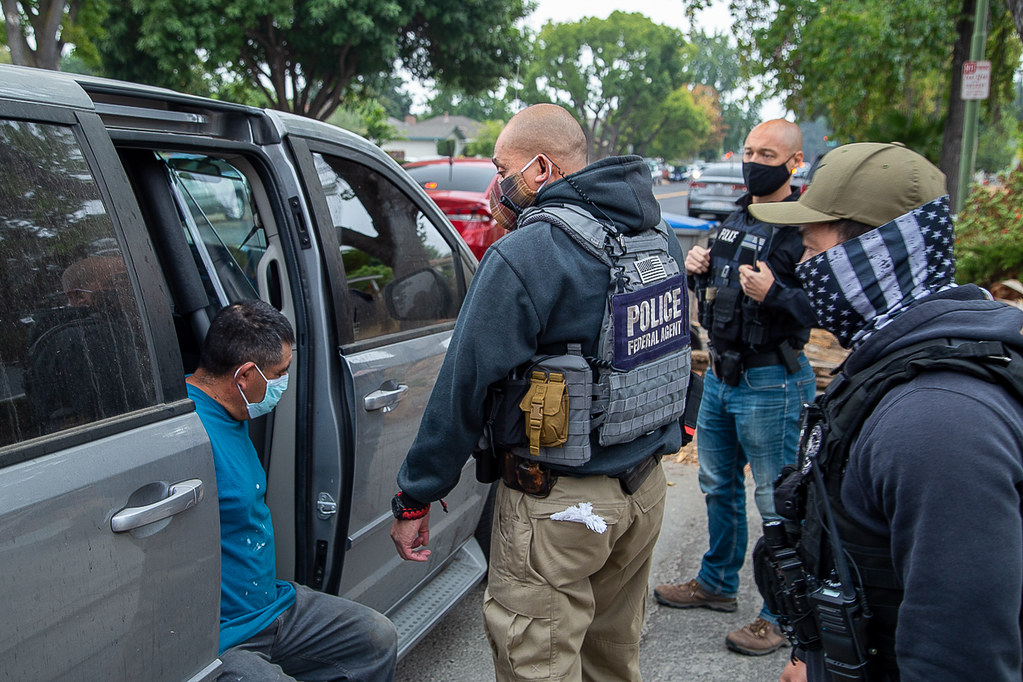 U.S. Attorney Barbara McQuade
U.S. Attorney Barbara McQuade
DETROIT — Things haven’t been dull for Barbara McQuade.
Right after being sworn in as the Detroit U.S. Attorney in January 2010, she started dealing with the “Underwear Bomber” case involving Umar Farouk Abdulmutallab, who tried to detonate an explosive aboard a Detroit-bound plane on Christmas day.
Later that year, her office indicted ex-Detroit Mayor Kwame Kilpatrick.
This year, her staff scored a major victory, convicting Kilpatrick, his buddy Bobby Ferguson and his dad Bernard Kilpatrick. She was involved in the decision that lead to the FBI digging for Jimmy Hoffa in June. And her prosecutors continue to investigate corruption in Wayne County government.
In a wide-ranging interview, McQuade, who has been a prosecutor in the office for 15 years, sat down with Deadline Detroit to talk about public corruption, terrorism, Hezbollah’s links to Metro Detroit, Kwame Kilpatrick’s upcoming sentencing, the Hoffa mystery, the credibility of ex-mobster Tony Zerilli who provided the latest tip as to Hoffa’s whereabouts, and what went into the decision to dig for the legendary union leader recently in Oakland Township.
“We knew there’d be some ridicule, like ‘Oh my gosh, they’re digging for Hoffa again,” she says.
The following interview was condensed and the questions were edited for clarity.
DD: Can we expect more indictments out of City Hall?
McQuade: I don’t know about city hall per se. I guess I wouldn’t want to comment on that. The pension fund case is pending and we’ll go to trial early part of next year. It’s no secret that we’re currently investigating Wayne County government because that has all been very public despite our efforts to do our best make sure we protect the integrity of people involved in that investigation. I think there have been six defendants convicted to date in that investigation.
DD: I noticed in the paper that former U.S. Attorney Jeff Collins, who works for Bob Ficano, has asked you for a letter for Ficano saying he’s not a target of the investigation. Apparently he’s not gotten one. Is there a reason not to issue a letter?
McQuade: I don’t want to comment on that other than we are investigating all aspects of Wayne County and we don’t know yet where the evidence may lead us. So people should not infer anything positive or negative from that.
DD: It’s unusual for a federal judge to detain a defendant in a white collar case before sentencing. Were you surprised Judge Nancy Edmunds detained Kwame Kilpatrick?
McQuade: We thought we had a reasonable chance of that outcome. I don’t know I expected that outcome. I wasn’t stunned in light of the history he had in the state court with flouting court orders.
DD: Have you seen that before in a white collar case?
McQuade: From time to time people get detained in white collar cases. I agree with you that it is more rare. There was no argument that he was a danger to the community and more often, those are the kind of defendants who get detained. This was more along the lines of risk of flight and a history of not complying with court orders.
DD: How involved was the Justice Department with the Kwame case and how worried were they about pulling the trigger and indicting?
McQuade: Not much at all. The Justice Department does get involved in certain kinds of cases with national implications. For example, the Abdulatalab case (Underwear Bomber), which was an international terrorism case. They were very involved in that and wanted to be kept apprised at every step of the way and we needed approval from them every step of the way. The Kilpatrick case much less so. Really we were notifying them of significant events in that case. But other than that, they really let us run that case on our own.
 Bernard Kilpatrick
Bernard Kilpatrick
DD: You indicted Bernard Kilpatrick, Kwame’s dad, who worked as a business consultant for city contractors. I know prosecutors sometimes worry the jury might be more sympathetic when they see a family unit on trial. Was that something that was debated?
McQuade: I guess I don’t want to talk about specifics of what we debated. But you’re absolutely right that those are always the kinds of things that you think about: How does this affect the jury’s perception of the case? Are we overreaching in any way? But we felt very strongly about charging Bernard Kilpatrick because we thought the evidence against him was very strong. Ultimately, the jury was hung on him with respect to RICO charges but did convict him of the tax charges. There was wire tap evidence, video evidence, that we thought was very strong that (showed) he was just not a participant but a leader in this activity.
DD: Do you think in his case or others the laws involving lobbying and consulting are too vague?
McQuade: Well, sometimes the lines are unclear about what is permitted and what is not permitted. But the evidence we thought in this case was very strong that there was no gray matter, that this was misconduct. But as I said, reasonable minds can disagree.
DD: A lot of people were happy to see the indictment, but some supporters of his wondered if it was racially motivated. Did you feel pressure if he walked that it would bolster his cries of racism?
McQuade: I wasn’t worried about it. Defendants always have some argument about why they’re being unfairly targeted. That’s a fairly common tactic. Certainly it was an important case for the city of Detroit. And so we did feel strongly and had great hopes the jury would see it our way and convict him. If he had not been held accountable I think it would have sent a terrible message to the entire city of Detroit and the entire community.
To read full interview click here.




